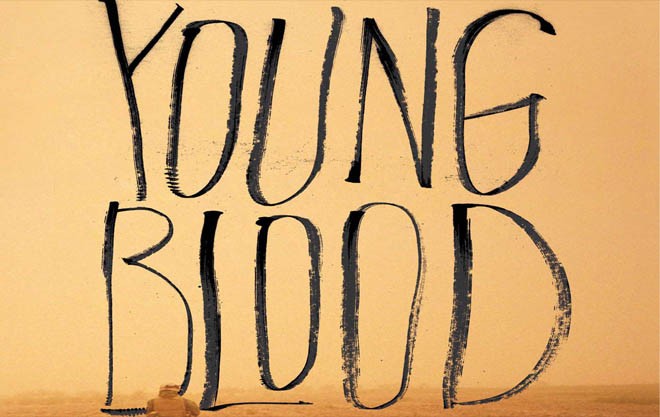
Anti-war novels cannot afford to be just about horror and moral failings, they need to go further to expose the economic structure

It is difficult to write a war novel, navigating the marshes of moral ambiguities and political conscience. An anti-war novel is even more difficult as it problematises who the true Other is. A colonial war backdrop adds to the complication since the choice of conferring the title falls between the protagonist (representing the invading army) or a symbolic figure from those who have been occupied. Matt Gallagher, in his debut, has written a decent novel by destabilising the ‘good vs evil’ and ‘us vs them’ paradigms.
Youngblood begins after the invasion is complete and a complete unravelling of Iraq’s social and political fabric is on full display with each group doing what’s best for them, killing whoever is a threat to their ideology or survival, not to mention an increasing death toll of American soldiers. No one from the outside can be trusted, but alliances have to be made. There’s al-Qaeda and Shia groups, the local Sunni Sahwa soldiers and civilian casualties.
In the midst of it, there’s Lieutenant Jack Porter, a man with a conscience, joining the war to prove his worth to himself. Porter avoids the cliché of having a noble white soul which the politicians of his country have corrupted. Unlike most American anti-war novels, the Other is present even if with limited agency. The protagonist has made an attempt to go native, respecting the locals, their history and customs. He’s made an effort to study Arabic and is honest enough to admit to still feeling unclean even after fasting in Ramzan. That’s a personal as well a collective statement.
Gallagher has unintentionally spun on Alain Resnais’ female protagonist from the film Hiroshima, My Love, who, while nursing the pain of the German occupation of France when she’d fallen in love with a German soldier, meets an atomic bomb survivor in Hiroshima and develops a bond with him. She had her head shaved off as a punishment for falling in love with the enemy, drawing a parallel with the atomic bomb survivors who’d lost hair due to radiation. In Youngblood there’s Rana who had fallen in love with a US soldier, Rios, dead now, who too had gone native by converting to Islam, prepared to live in Iraq to rebuild the country. Porter succeeds in finding Rios’ body and also tracks down Rana, who’s now married with two young sons. Porter finds himself attracted to her; the feelings are mutual.
If Porter represents the ambiguity of colonial adventures, his nemesis Sergeant Chambers - who kills innocent civilians during night patrols -- along with his platoon, represents realpolitik with no illusions about what war is supposed to be, collateral damage be damned. To shake the ‘good vs evil’ dialectic, Gallagher has the trigger happy Sergeant Chambers save Porter’s life during a raid, only to die months later in an unflattering way.
It is not clear whether Porter’s actions are an act of atonement when he steals money meant for collaborators and gives it to a human smuggler who’d take Rana and her sons to the safety of Beirut. In the end, neither the protagonist nor the reader know if she made it there or lies dead in a ditch.
The novel ends on a poignant note as Porter quits the army and studies in Beirut hoping to run into Rana someday. Yet bigger questions linger. Unlike Kip in The English Patient, who responds to the call of his conscience that he cannot fight the colonial war anymore, Porter has an uneasy relationship with such knowledge. Is he a foot soldier or is he not? Sergeant Chambers, his alter ego, has more clarity about his lack of power on that decision.
Gallagher’s careful equating of good and evil on both sides can be read as waffling on a serious moral issue. Also most American authors rarely rope in geopolitics and colonial history, rendering their fiction thin. Gallagher’s strict adherence to realism takes away the possibility of entering any character’s emotional, psychological state of mind. That makes it impossible for the real Other of the war narrative to reveal the destruction and breakdown the intruder and his hegemony have caused.
Realism becomes a shackle that ties down a sensitive author to become a sort of a voyeur despite good intentions. Anti-war novels cannot afford to be just about destruction and horror and moral failings. They need to go a step or two further to challenge and expose the economic structure that necessitates occupation and stealing for resources. If the author fails to do so, it is implied that he or she benefits from the status quo.